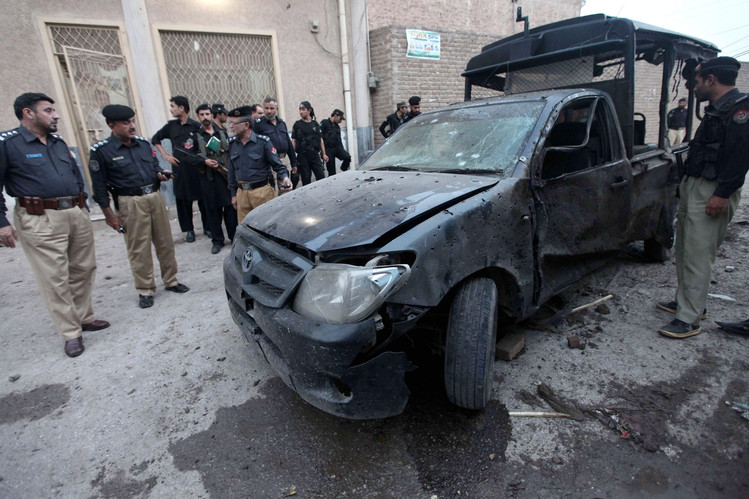A devastating roadside bomb attack struck a convoy of foreign diplomats in Pakistan’s Swat Valley on Sunday, killing a police officer and injuring four others. The diplomats, nearly a dozen in number, were visiting the area at the invitation of the local chamber of commerce, and thankfully, all the ambassadors remained safe and were swiftly relocated to a secure location before departing for Islamabad.
The attack occurred when the lead squad of the convoy was hit by a roadside bomb, according to Swat district police officer Zahidullah Khan. Deputy Inspector General of police Mohammad Ali Gandapur confirmed to Reuters that the diplomats were unharmed and had been moved to a safe location ¹. Unfortunately, the nationality of the diplomats has not been disclosed.
This incident highlights the ongoing security concerns in the Swat Valley, which has long been plagued by Islamist militant insurgency. The region has witnessed several high-profile attacks, including the 2012 shooting of Nobel Peace Prize laureate Malala Yousafzai. No group has claimed responsibility for the attack, but authorities suspect the involvement of militant organizations, particularly Tehrik-i-Taliban Pakistan (TTP), which has been accused of perpetrating similar attacks in the region.
The TTP has been a major player in the insurgency in Khyber Pakhtunkhwa, also known as the War in North-West Pakistan or Pakistan’s war on terror ¹. The conflict began in 2004 when tensions rooted in the Pakistan Army’s search for al-Qaeda fighters in Pakistan’s mountainous Waziristan area escalated into armed resistance ¹. Pakistan’s actions were presented as its contribution to the U.S. War on terror.
In recent years, the Pakistani government has made significant gains against the militants, but the TTP has continued to launch attacks. In 2022, the TTP renounced a ceasefire and called for nationwide attacks against Pakistan. The Pakistani government has since launched military operations to root out militants, including Operation Azm-e-Istehkam, which aims to eradicate extremism and terrorism in a comprehensive and decisive manner.
The ongoing conflict has had a significant impact on Pakistan’s economy and society, with estimated losses of over $126 billion since 2001. The government has implemented various measures to counter terrorism, including the establishment of military courts and the passage of anti-terrorism laws. However, the security situation remains volatile, and incidents like the attack on the diplomatic convoy highlight the need for continued vigilance and cooperation between Pakistan and the international community.



